
-
 Players pay tribute to Bondi victims at Ashes Test
Players pay tribute to Bondi victims at Ashes Test
-
Costa Rican president survives second Congress immunity vote

-
 Married couple lauded for effort to thwart Bondi Beach shootings
Married couple lauded for effort to thwart Bondi Beach shootings
-
Australia holds first funerals for Bondi Beach attack victims
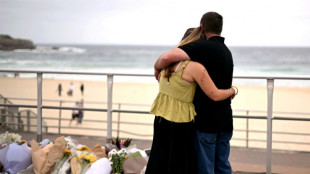
-
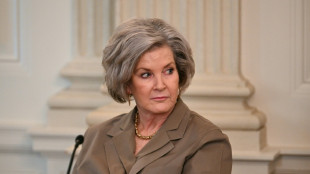 Trump has 'alcoholic's personality,' chief of staff says in bombshell interview
Trump has 'alcoholic's personality,' chief of staff says in bombshell interview
-
Rob Reiner killing: son to be charged with double murder
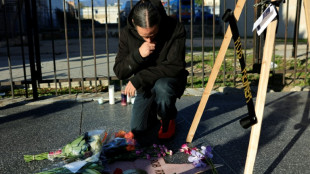
-
 Chelsea battle into League Cup semis to ease pressure on Maresca
Chelsea battle into League Cup semis to ease pressure on Maresca
-
Netflix boss promises Warner Bros films would still be seen in cinemas
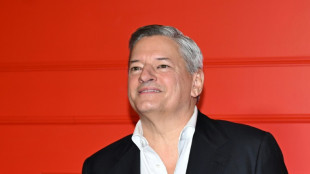
-
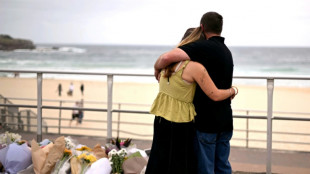 Grok spews misinformation about deadly Australia shooting
Grok spews misinformation about deadly Australia shooting
-
Stocks mostly retreat on US jobs, oil drops on Ukraine hopes
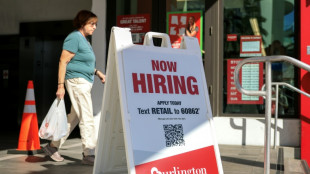
-
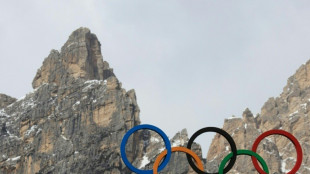 Artificial snow woes for Milan-Cortina Winter Olympics organisers
Artificial snow woes for Milan-Cortina Winter Olympics organisers
-
Trump imposes full travel bans on seven more countries, Palestinians

-
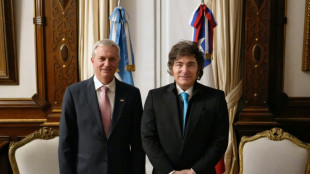 New Chile leader calls for end to Maduro 'dictatorship'
New Chile leader calls for end to Maduro 'dictatorship'
-
Shiffrin extends slalom domination with Courchevel win

-
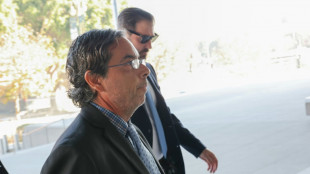 Doctor sentenced for supplying ketamine to 'Friends' star Perry
Doctor sentenced for supplying ketamine to 'Friends' star Perry
-
Tepid 2026 outlook dents Pfizer shares

-
 Rob Reiner murder: son not medically cleared for court
Rob Reiner murder: son not medically cleared for court
-
FIFA announces $60 World Cup tickets for 'loyal fans'
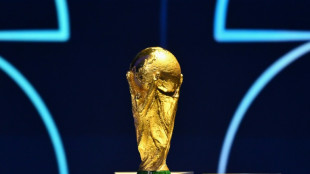
-
 Dembele and Bonmati scoop FIFA Best awards
Dembele and Bonmati scoop FIFA Best awards
-
Shiffrin dominates first run in Courchevel slalom

-
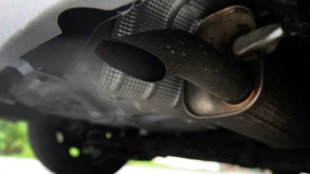 EU weakens 2035 combustion-engine ban to boost car industry
EU weakens 2035 combustion-engine ban to boost car industry
-
Arctic sees unprecedented heat as climate impacts cascade
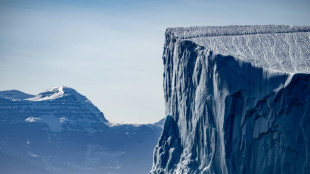
-
 French lawmakers adopt social security budget, suspend pension reform
French lawmakers adopt social security budget, suspend pension reform
-
Afrikaners mark pilgrimage day, resonating with their US backers
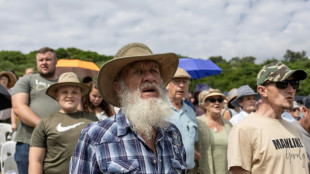
-
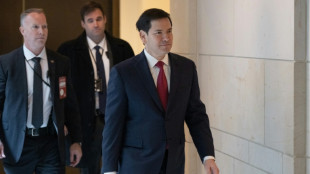 Lawmakers grill Trump officials on US alleged drug boat strikes
Lawmakers grill Trump officials on US alleged drug boat strikes
-
Hamraoui loses case against PSG over lack of support after attack

-
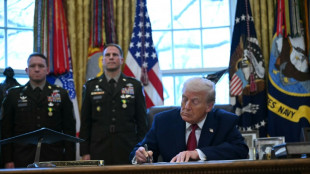 Trump - a year of ruling by executive order
Trump - a year of ruling by executive order
-
Iran refusing to allow independent medical examination of Nobel winner: family
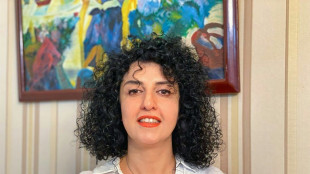
-
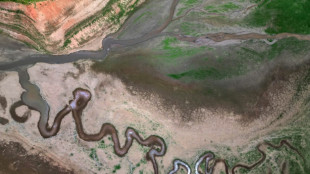 Brazil megacity Sao Paulo struck by fresh water crisis
Brazil megacity Sao Paulo struck by fresh water crisis
-
Australia's Green becomes most expensive overseas buy in IPL history

-
 VW stops production at German site for first time
VW stops production at German site for first time
-
Man City star Doku sidelined until new year

-
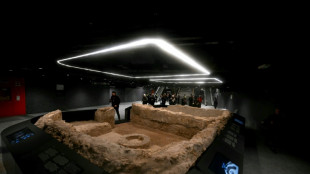 Rome's new Colosseum station reveals ancient treasures
Rome's new Colosseum station reveals ancient treasures
-
EU eases 2035 combustion-engine ban to boost car industry
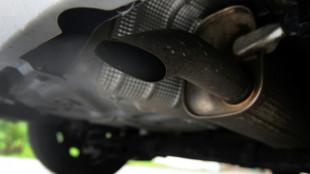
-
 'Immense' collection of dinosaur footprints found in Italy
'Immense' collection of dinosaur footprints found in Italy
-
US unemployment rises further, hovering at highest since 2021

-
 Senators grill Trump officials on US alleged drug boat strikes
Senators grill Trump officials on US alleged drug boat strikes
-
Filmmaker Rob Reiner's son to be formally charged with parents' murder

-
 Shift in battle to tackle teens trapped in Marseille drug 'slavery'
Shift in battle to tackle teens trapped in Marseille drug 'slavery'
-
Stocks retreat on US jobs, oil drops on Ukraine hopes
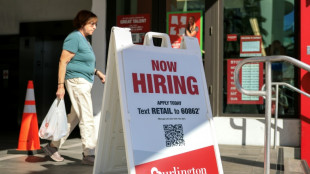
-
 Manchester United 'wanted me to leave', claims Fernandes
Manchester United 'wanted me to leave', claims Fernandes
-
Serbian President blames 'witch hunt' for ditched Kushner hotel plan
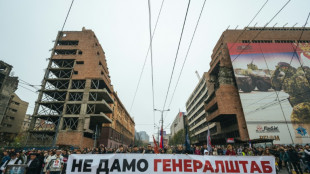
-
 Man who hit Liverpool parade jailed for over 21 years
Man who hit Liverpool parade jailed for over 21 years
-
Sahel juntas would have welcomed a coup in Benin: analysts

-
 PSG ordered to pay around 60mn euros to Mbappe in wage dispute
PSG ordered to pay around 60mn euros to Mbappe in wage dispute
-
BBC says will fight Trump's $10 bn defamation lawsuit

-
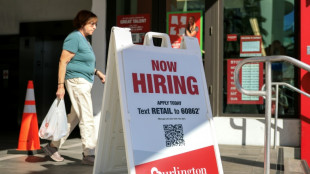 Stocks retreat ahead of US jobs, oil drops on Ukraine hopes
Stocks retreat ahead of US jobs, oil drops on Ukraine hopes
-
Suicide bomber kills five soldiers in northeast Nigeria: sources

-
 EU set to drop 2035 combustion-engine ban to boost car industry
EU set to drop 2035 combustion-engine ban to boost car industry
-
Australia's Green sold for record 252 mn rupees in IPL auction


Energy crisis pushes nuclear comeback worldwide
As the costs of importing energy soars worldwide and climate crises wreak havoc, interest in nuclear power is on the rise with nations scrambling to find alternative sources.
Investment in nuclear power declined after Japan's 2011 Fukushima disaster, the world's worst nuclear accident since Chernobyl in 1986, as fears over its safety increased and governments ran scared.
But following Moscow's invasion of Ukraine in February, the subsequent squeeze on energy supplies and Europe's push to wean itself off of Russian oil and gas, the tide is now turning back in favour of nuclear.
Governments face difficult decisions with rising gas and electricity bills and scarce resources threatening to cause widespread suffering this winter.
Some experts argue that nuclear power should not be considered an option, But others argue that, in the face of so many crises, it must remain part of the world's energy mix.
One of the countries reconsidering nuclear energy is Japan, where the 2011 accident led to the suspension of many nuclear reactors over safety fears.
This week Japan's Prime Minister Fumio Kishida called for a push to revive the country's nuclear power industry, and build new atomic plants.
Other countries that were looking to move away from nuclear have discarded those plans -- at least in the short term.
Less than a month after Russia's attack on Ukraine, Belgium delayed by a decade its plan to scrap nuclear energy in 2025.
While nuclear power, currently used in 32 countries, supplies 10 percent of the world's electricity production, the International Atomic Energy Agency (IAEA) raised its projections in September for the first time since the 2011 disaster.
The IAEA now expects installed capacity to double by 2050 under the most favourable scenario.
- Climate reasoning -
Even in Germany, Europe's biggest economy, sticking with nuclear is no longer a taboo subject as the energy crisis rekindles debate on shutting down the country's last three nuclear power plants by the end of 2022.
Berlin said last month it would await the outcome of a "stress test" of the national electric grid before deciding whether to stick with the phaseout.
Greenpeace Germany's climate and energy expert, Gerald Neubauer, said turning to nuclear was "not a solution to the energy crisis".
He said nuclear energy would have "limited" efficacy in replacing Russian gas since it is mainly "used for heating" in Germany not for electricity production.
"The reactors would only save the gas used for electricity, it would save less than one percent of the gas consumption," he added.
But according to Nicolas Berghmans, energy and climate expert at the IDDRI think tank, extending the use of nuclear "can help".
"Europe is in a very different energy situation, with several overlapping crises: the problem of Russian gas supply, the drought that has reduced the capacity of dams, the French nuclear plants' weak output... so all the levers matter," he said.
The pro-nuclear lobby says it is one of the world's best options to avoid climate change since it does not directly emit carbon dioxide.
In fact, nuclear energy accounts for a bigger share of the world power mix in most of the scenarios put forward by the IPCC, the UN's climate experts, to alleviate the global climate crisis.
- Divided opinions -
As the need for electricity booms, several countries have expressed a desire to develop nuclear infrastructure including China -- which already has the largest number of reactors -- as well as the Czech Republic, India and Poland since nuclear offers an alternative to coal.
Likewise, Britain, France and the Netherlands have similar ambitions, and even the United States where President Joe Biden's investment plan encourages the sector's development.
The IPCC experts recognise that the deployment of nuclear energy "can be constrained by societal preferences" since the subject still divides opinion because of the risk of catastrophic accidents and the still unresolved issue of how to dispose of radioactive waste safely.
Some countries, like New Zealand, oppose nuclear, and the issue has also been hotly debated in the European Union over whether it should be listed as a "green" energy.
Last month, the European Parliament approved a contentious proposal giving a sustainable finance label to investments in gas and nuclear power.
Other issues remain over nuclear infrastructure including the ability to build new reactors with costs and delays tightly controlled.
Berghmans pointed to "long construction delays".
"We're talking about medium-term solutions, which won't resolve tensions in the market", as they will arrive too late to address climate crises, he said, but suggested focusing on the "dynamic" renewable energies sector that can be immediately helpful.
J.Fankhauser--BTB
